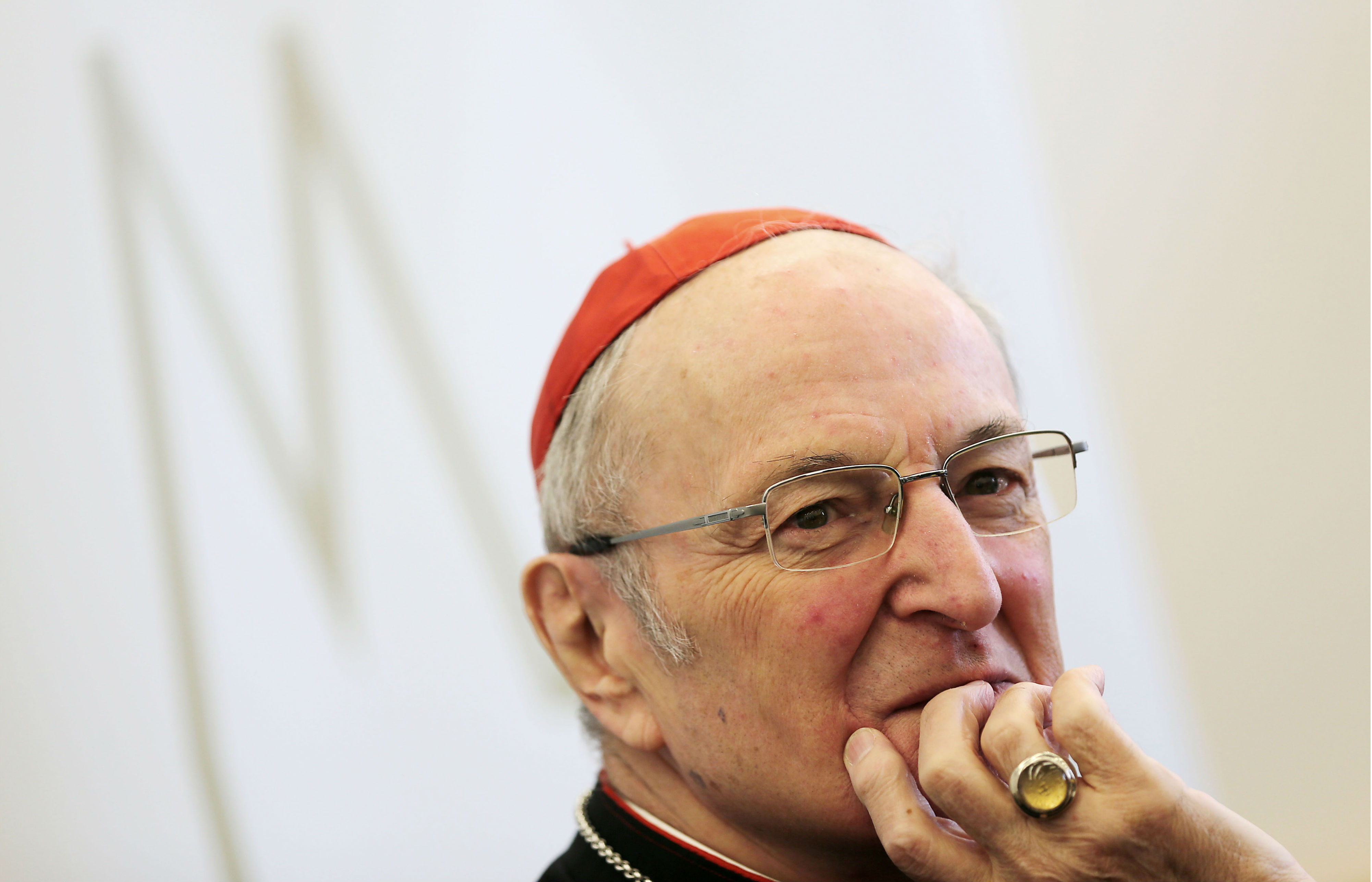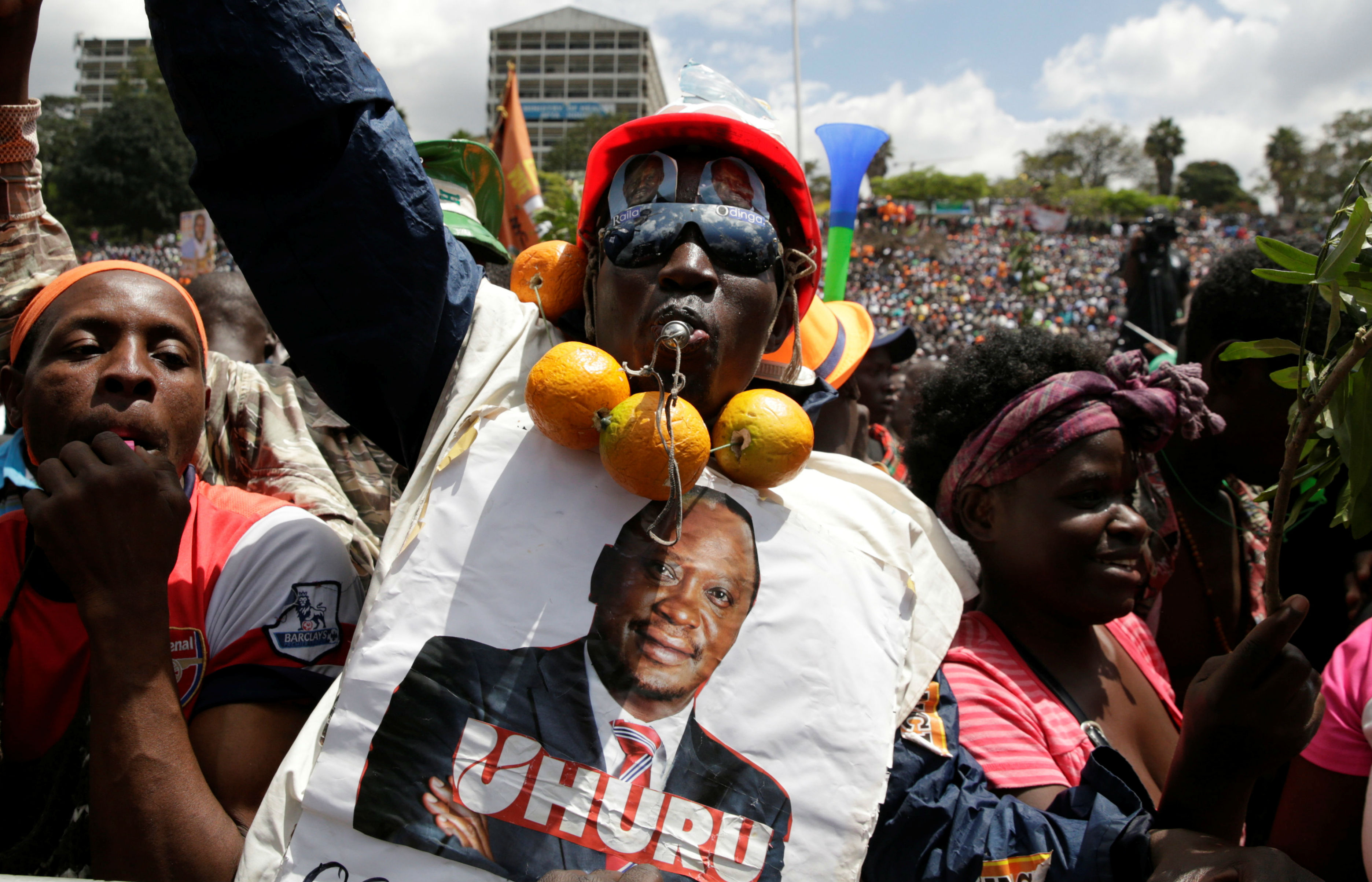Ahead of the election on 8 August, Kenyans are reported to be fleeing areas worst hit by deadly violence a decade ago in fear of a repeat of the contested 2007 poll, when political protests rapidly spiralled into ethnic bloodletting.
Maurice Muhatia, Bishop of Nakuru, expressed alarm over the rate at which families were fleeing the county.
“Some families are first transporting their children, then wife and personal effects to their rural areas ahead of the election,” he said on 10 June.
In the widespread ethnic violence that followed the 2007 elections, the county of Nakuru was hit hard, with supporters of the then-ruling party beating and killing opposition party supporters.
“We have vowed that as Nakuru residents, we shall not allow any form of violence in this county and neither shall we go back to the dark days of 2007,” Bishop Muhatia told local newspapers.
Human Rights Watch reported this week (3 July) that they have documented at least six incidents of direct threats against opposition supporters in Nakuru county, with people from both sides of the political divide saying that such threats were increasingly prevalent.
Eight opposition supporters said a group of young men in the Kinamba and Kihoto neighbourhoods of Naivasha (a sub-county within Nakuru), have repeatedly told them to stay away from polling places if they do not intend to vote for the ruling party.
Historically, politics in Kenya is largely ethnically driven, with voters rallying behind candidates from their ethnic group.
In August’s presidential vote, incumbent President Uhuru Kenyatta – who is from the Kikuyu tribe - will, once again, stand against his rival Raila Odinga – a Luo.
Ongoing rivalry between the Luo and Kikuyu tribes has defined a large part of Kenya's post-Independence history.
In a pastoral letter issued on 20 June, Kenya’s Catholic bishops urged their country’s politicians to pursue peace and refrain from inflammatory statements that “incite hatred” and from “drumming up tribal and ethnic sentiments.”
“We appeal to the Politicians to conduct themselves peacefully and ensure that whatever they do should be in the interest of Kenyans and in particular, to promote unity of the Country”, continues the letter, signed Bishop Philip Anyolo, Chairman of the Kenya Conference of Catholic Bishops.
Already, hostilities witnessed during the election build-up have rekindled memories of 2007.
Recently, eight politicians – representing both the ruling party and the opposition - were arrested and charged with alleged hate speech and incitement to violence.
The National Cohesion and Integration Commission, a government-funded independent body whose mandate is to crack down on hate speech, recommended the prosecution of 17 people, resulting in three convictions.
The commission added that, as in the 2007 violence, certain radio stations are openly propagating an ethnic agenda. “We are extremely worried about what is going on,” Francis Kaparo, the chairman of the commission, said at a press conference in mid-May. “We are calling for peaceful campaigns ahead of the August elections,” he added.
In late April, Kenya’s interior ministry said that politically instigated violence had been recorded in 12 counties so far.
"Politicians and their supporters have engaged in acts of violence, destroying property and creating disturbance in polling stations," it said, reports Reuters.
At least 14 civilians and four policemen have been killed during ongoing violence in the drought-hit northern Laikipia region. A local politician has been charged with inciting violence and arson after invasions of private land by cattle-herders and a spate of attacks on farmers and owners of wildlife conservancies.
Likewise, polls held in April to pick candidates for national elections were marred by allegations of ballot stuffing, fraud and violence.
Odinga has said mass protests are possible if August’s election is rigged.
With Kenyans tending to vote according to tribal allegiances, political parties have formed alliances based on tribes.
The Kikuyus and Kalenjins support the Jubilee Alliance of Kenyatta and his deputy, William Ruto. The opposition National Alliance is a union of tribes led by Odinga, a Luo from western Kenya, Musalia Mudavadi, a Luhya from western Kenya, and Kalonzo Musyoka from the Kamba tribe.
Critics across Kenya have blamed the current government for corruption and raising the prices of basic commodities.
Inflation has hit a four-year high, increasing from just under seven per cent in January to 11.7 per cent in May because of fast-rising food and fuel prices, according to the National Bureau of Statistics.
But, hard times tend to accentuate, rather than alleviate, tribal rivalries.
PICTURE: A supporter of Kenyan opposition National Super Alliance (NASA) coalition wears a poster depicting Kenya's President Uhuru Kenyatta at a rally at the Uhuru Park grounds, in Nairobi, Kenya, 27 April



 Loading ...
Loading ...